All the Jews Biden has tapped for top roles in his new administration
From secretary of state to attorney general, a diverse cross-section of American Jewry is set to fill seats at the incoming president’s Cabinet table and elsewhere in government
By JTA
January 22, 2021 "Information Clearing House" - "Times Of Israel" - US President Joe Biden filled the months before Inauguration Day lining up a slate of Cabinet secretaries, assistants and advisers, many of them Jewish.
Biden’s choices reflect a diverse cross-section of American Jewry and possess expertise gleaned from decades of experience in government, science and medicine and law.
Here’s a rundown of the Jewish names you should know as the Biden administration begins.
No Advertising - No Government Grants - This Is Independent Media
Anthony Blinken, Secretary of State
Blinken, a longtime Biden adviser with an extensive diplomacy resume, is the stepson of a Holocaust survivor whose stories shaped his worldview and subsequently his policy decisions, including in the Middle East. He holds mainstream Democratic views about Israel and said during his confirmation hearing Tuesday that he wants the US to reenter the Iran nuclear deal — and that he would consult with Israel on Iran policy.
Anthony Blinken speaks at The Queen theater in Wilmington, Delaware, November 24, 2020. (Carolyn Kaster/AP)
David Cohen, CIA Deputy Director
Cohen, who has long been involved in Jewish causes and issues, will occupy the job he held under President Barack Obama. He does not require confirmation, meaning that Biden’s CIA has a top expert in Iran issues from Day One.
David Cohen, seen here at a Capitol Hill hearing on Iran sanctions in 2011, was named to the No. 2 position at the Central Intelligence Agency. (Brendan Hoffman/Getty Images via JTA)
Merrick Garland, Attorney General
Garland was blocked from joining the Supreme Court in the last year of the Obama administration. Now, he’ll require Senate confirmation to become the country’s top lawyer. In his speech after being nominated, he credited his grandparents, who fled anti-Semitism in Europe before coming to the US.
Merrick Garland shown in 2016, has been nominated to be the next attorney general. (Alex Wong/Getty Images)
Avril Haines, Director of National Intelligence
Haines was deputy director of the CIA under Obama and Biden reportedly considered her to run that agency. Her mother was the Jewish painter Adrian Rappin (originally Rappaport), and her non-Jewish father once wrote in an account about a trip with Haines to Israel that the nominee identifies as Jewish.
Avril Haines, US President-elect Joe Biden’s nominee for director of national intelligence, speaks during her confirmation hearing on January 19, 2021, in Washington. (Joe Raedle/Pool/AFP)
Ronald Klain, Chief of Staff
Klain, a longtime Biden aide who was the president-elect’s first major appointment in November, was previously chief of staff to Biden in his vice president days and to Vice President Al Gore. He has maintained ties with his childhood synagogue in Indianapolis, where he famously learned multiple Torah portions for his bar mitzvah, and has spoken about his commitment to raising Jewish children.
Ron Klain, then President Obama’s ‘ebola czar,’ in Washington, DC, January 13, 2015. (Bill O’Leary/The Washington Post/Getty Images)
Eric Lander, Office of Science and Technology Policy director
Lander, a leading geneticist, will require Senate confirmation after Biden elevated his position to the Cabinet level. After he was criticized for toasting James Watson, the scientist who is credited with discovering the shape of DNA and who also expressed racist and sexist views, Lander said he, too, had been the subject of anti-Semitic comments by Watson.
US President-elect Joe Biden, right, listens as his nominee for the director of the Office of Science and Technology Policy and adviser on science Eric Lander speaks during an event in Wilmington, Delaware, January 16, 2021. (AP Photo/Matt Slocum)
Rachel Levine, deputy health secretary
Levine, raised in a Conservative Jewish home in Massachusetts, is Pennsylvania’s health secretary. She is the first known transgender person to be nominated for a position that requires Senate confirmation.
Pennsylvania Secretary of Health Dr. Rachel Levine meets with the media at the Pennsylvania Emergency Management Agency (PEMA) headquarters in Harrisburg, Pennsylvania, May 29, 2020. (Joe Hermitt/The Patriot-News via AP, File)
Alejandro Mayorkas, Secretary of Homeland Security
Mayorkas, 60, the deputy secretary of Homeland Security under President Barack Obama, was born in Cuba to a Cuban Jewish father and Romanian Jewish mother who survived the Holocaust. He has worked closely with Jewish groups and spoken often about the specific threats facing American Jews. An array of Jewish groups sought a swift confirmation given the threat of extremist violence surrounding the presidential transition, but a Republican senator who supported overturning the election results blocked that possibility on Tuesday.
Alejandro Mayorkas, on Capitol Hill in Washington, Thursday, July 25, 2013. (AP Photo/J. Scott Applewhite)
Anne Neuberger, National Security Agency cybersecurity director
An Orthodox Jew originally from Brooklyn and educated through college in Orthodox schools, Neuberger has worked at the NSA for more than a decade. She helped establish the US Cyber Command and worked as chief risk officer, where she led the agency’s election security efforts for the 2018 midterms.
Anne Neuberger, an Orthodox Jew, was recently tapped to head the US National Security Agency’s new Cybersecurity Directorate. (National Security Agency via JTA)
Wendy Sherman, deputy secretary of state
Sherman was the lead negotiator for the 2015 Iran nuclear deal and took the lead in advocating for the agreement with the Jewish and pro-Israel communities, later describing tensions with Israel and some American Jewish groups over the deal as “very, very painful.” She has also played a role in hewing the Democratic Party platform to traditional pro-Israel lines.
US Undersecretary of State for Political Affairs Wendy Sherman testifies on Capitol Hill in Washington, Oct. 3, 2013, before a Senate Foreign Relations Committee hearing. (AP Photo/Molly Riley)
Janet Yellen, Treasury secretary
Yellen already made history as the first woman chair of the Federal Reserve, but now she has been appointed to be the first female Treasury secretary. The respected centrist was one of three Jews featured in a 2016 Trump attack ad that reflected longstanding anti-Semitic tropes.
Federal Reserve Board Chair Janet Yellen speaks during a briefing at the US Federal Reserve December 13, 2017 in Washington, DC. (Photo credit should read BRENDAN SMIALOWSKI/AFP via Getty Images)
It’s time to stop counting Jews in the Cabinet
Pride in members of the tribe in the new administration is understandable, even if many disdained the Jews in the Trump White House. But what matters is what they will do, not their religion.
By Jonathan S. Tobin
January 22, 2021 "Information Clearing House" - "JNS" Jewish Democrats are celebrating this week and with good reason. Their party is about to take back power in Washington and end the presidency of the man they all love to hate: President Donald Trump. But adding a certain frisson of pride to their touchdown dances is the number of Cabinet members, and other officials and personalities, within the new First and Second families who are Jewish.
It’s an impressive tally. Social media is awash with posts with lists of the Jewish cabinet secretaries and undersecretaries, as well as the Jewish connections of President Joe Biden and Vice President Kamala Harris. When placed in the broad sweep of the nation’s history, it’s an important statement about the acceptance and the accomplishments of American Jewry. A century ago or even for several decades afterward, such a number would have been inconceivable.
But it’s 2021, not 1921. Having Jews in positions of great influence is no longer such a big deal; in fact, it’s quite commonplace.
Nine Jews are in the new Senate (including the new Majority Leader) and 25 in the House of Representatives, making up more than 6 percent of the total Congress. That’s more than triple the percentage of Jews in the general population. There are also two Jews out of the nine justices on the U.S. Supreme Court. Seen in that light, a Jewish secretary of state, treasury secretary, homeland security secretary, attorney general and director of national intelligence—to name a few high-level positions—are merely a reflection of the preponderance of Jews who have risen to the top of just about every sector of American society.
Nor is it a great break from the previous administration, though that is something that many of those sharing those posts on Facebook about the Jews and Biden don’t like to talk about. The list of Jews in important positions in Trump’s administration was also impressive. But since the overwhelming majority of Jews despised Trump, there was a great deal more demonizing than kvelling going on about them on Jewish social media the last four years.
In a country that is not only living through one of the most hyper-partisan and divisive moments in its history—and where for most people, politics has replaced the role that religion used to play in their lives—that’s to be expected.
If you thought Trump was a Nazi—a piece of deeply misleading hyperbole that became conventional wisdom among many Jews—you weren’t going to care if the secretary of the treasury or a number of other important officials was a Jew, or about the fact that the president had a daughter who converted to Judaism and had Jewish grandchildren. Since politics has become a cultural tribal war, Jews on the other team are to be deemed traitors or worse; only your side’s Jews are something about which to express pride.
But there are still two important points to be gleaned from the discussion about counting Jews in any administration.
There was once a reason to care about counting Jews in presidential cabinets. In times when Jews were a marginalized minority shunned by society, the ability of a Jewish politician or adviser to rise to prominence was not only a source of communal pride, but an inspiration to young people to believe that they, too, could aspire to high office.
That was especially true in the early 20th century as anti-Semitism became even more prevalent. At such times, Jews needed role models wherever they could be found. In that same spirit, Jewish sports heroes were particularly important. They symbolized not just acceptance, but the sort of strength that was an answer to the harmful stereotypes employed by anti-Semites. In that context, someone like Hank Greenberg was more than just a baseball slugger; he was a much-needed example of Jewish strength.
But while some Jewish baseball fans still take note of players who identify as Jews, in an era when, despite the persistence of anti-Semitism, American Jews are not the weak minority they were in Greenberg’s time, it doesn’t really matter.
The same applies to those counting Jews in any administration, but with one caveat. Having someone who can be considered Jewish in positions of influence is especially unimportant if their policies and actions don’t contribute to the security of the Jewish community or of Israel.
One of the most disgraceful chapters in American Jewish history involves the behavior of those Jews—like Rabbi Stephen Wise and others like Supreme Court Justice Felix Frankfurter—who had the ear of President Franklin D. Roosevelt, yet failed to use their influence to advocate for the rescue of European Jewry during the Holocaust. By contrast, Treasury Secretary Henry Morgenthau Jr. is remembered with honor because he did speak up for rescue when it mattered and helped save many lives.
Many Jewish officials have played important roles in formulating U.S. foreign policy throughout the last three decades. But for the most part—and without casting aspersions on their integrity or intentions—their presence in the corridors of power did little to influence events to the benefit of the alliance between the only Jewish state on the planet and the United States. Indeed, many Jewish diplomats seemed to specialize in pressuring Israel and in seeking to undermine its efforts to resist policies that the majority of its people believed to be dangerous to their security.
Similarly, the role of some Jews like Wendy Sherman and Ben Rhodes in crafting a disastrous nuclear deal with Iran that endangered Israel and the entire Middle East, and enriched and empowered a genocidal terrorist state, is not something about which their co-religionists should regard with pride, even if those who did so were merely mistaken rather than ill-intentioned.
Thanks to Trump’s deeply irresponsible behavior that culminated in the U.S. Capitol riot, his administration’s record is viewed by many solely through the prism of the way it is leaving power. But it bears remembering that the key people in his Middle East policy team, including his senior adviser/son-in-law Jared Kushner and U.S. Ambassador to Israel David Friedman, as well as others, were not just people who count in the tally of Jews in office. They actually used their power to support Israel against its enemies and to successfully work to bring about historic acts, such as the moving of the U.S. embassy from Tel Aviv to Jerusalem and normalization agreements with Arab and Muslim countries, the importance of which will long outlive the petty political arguments into which most of us pour so much energy.
What ought to matter to the Jewish community is not the number of Jews or people with Jewish relatives there are in any administration, but whether they act in a manner that makes both the United States and the Jewish people more secure. The verdict of history on those who served Trump should be far more laudatory than most American Jews are currently likely to give them. It remains to be seen whether those employed by Biden will deserve as much praise.
Jonathan S. Tobin is editor in chief of JNS—Jewish News Syndicate. Follow him on Twitter at: @jonathans_tobin.
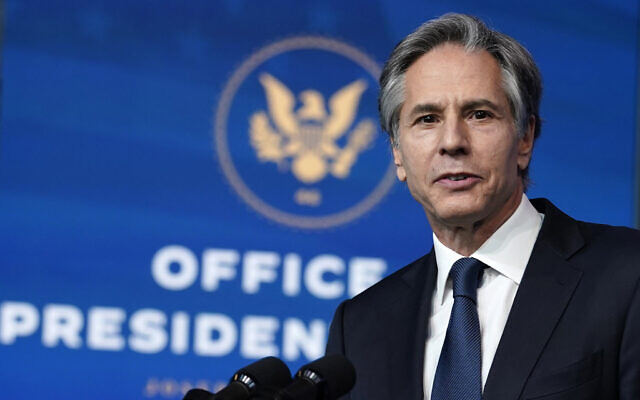
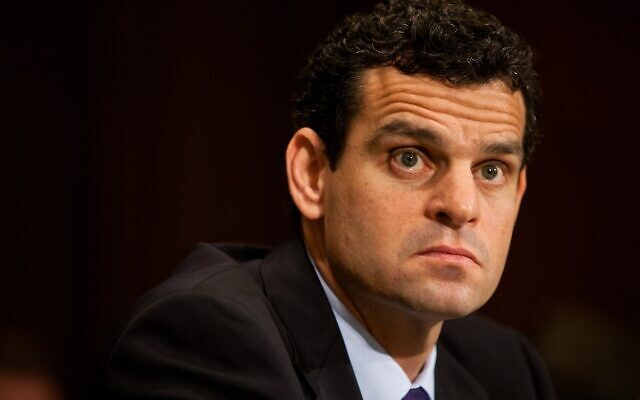
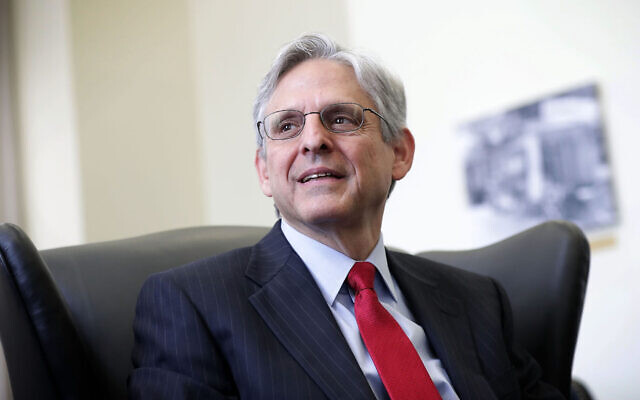
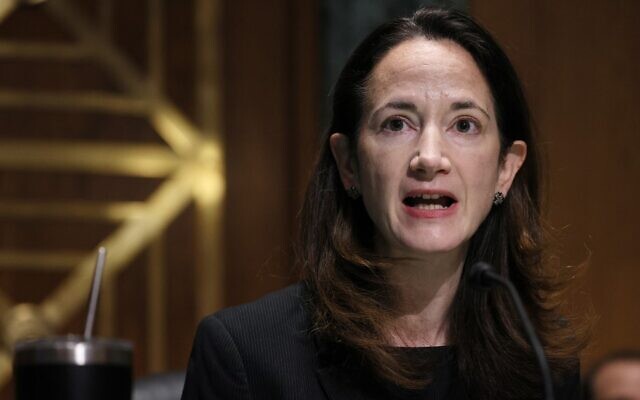


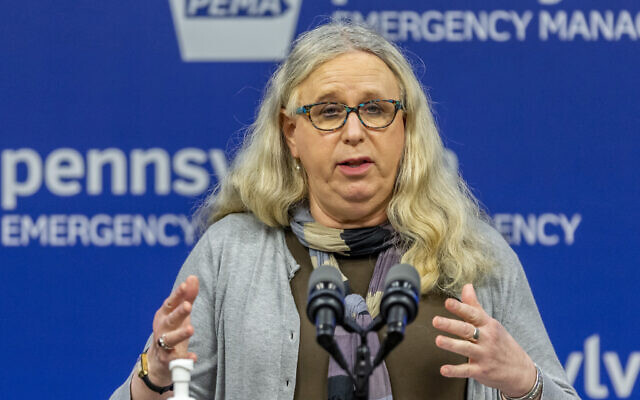

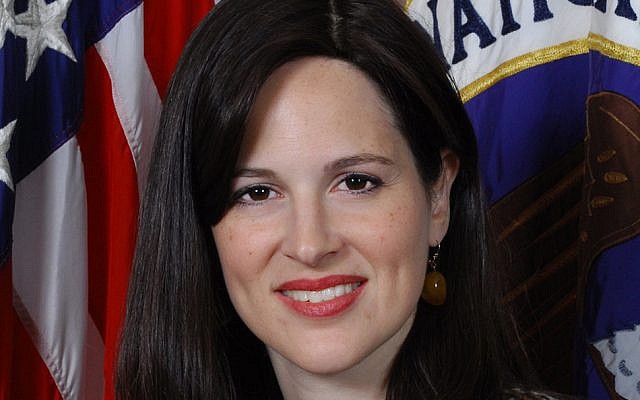
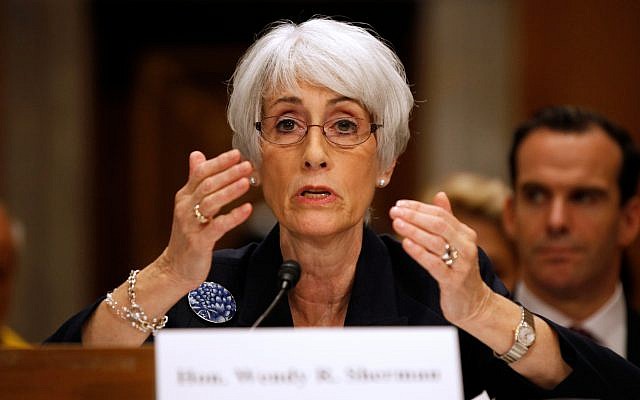





Geen opmerkingen:
Een reactie posten